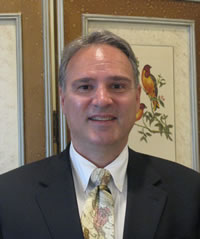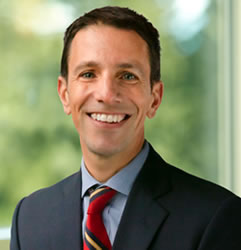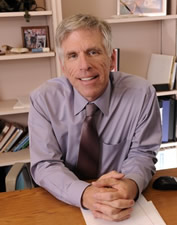It is a common error that an attorney retains the wrong type of expert to testify in a lawsuit. This error is particularly common when the expert is a medical specialist. It is widely believed that a medical doctor who specializes in a particular organ system is qualified to formulate opinions and testify as to all issues concerning that organ system. It is often assumed that a neurosurgeon who is qualified to operate on spines should be able to determine if a ruptured lumbar disc was caused by a low speed rear-end automobile collision. While this is a common assumption, it is often false and is due to a lack of understanding of the true range of expertise of a neurosurgeon. The following will illustrate the problem of incorrect assumptions concerning the range of expertise of neurosurgeons and other medical specialists that may be called upon to opine in vehicular injury cases.
A few years ago, a defense attorney called to ask me how to counter the opinion of a treating neurosurgeon concerning whether or not a motor vehicle collision had caused the plaintiff's ruptured lumbar disc. The plaintiff's neurosurgeon had opined that the low-speed motor vehicle collision involving his patient (plaintiff) was the cause of the patient's lumbar disc herniation. My response was that while the neurosurgeon may be highly qualified in his specialty, he did not have the biomedical engineering expertise to determine whether or not the motor vehicle collision was the cause of plaintiff's rupture lumber disc. The neurosurgeon may be fully qualified to diagnose and perform surgery on a ruptured lumbar disc. However, he is not qualified to formulate an opinion about forces in a car crash based solely upon photographs of damage to the vehicles. The neurosurgeon was simply not qualified to render his opinion since he does not have the biomedical engineering expertise required to determine the forces in a car crash. Diagnosing and treating a ruptured lumbar disc is a medical activity. Determining the forces in a car crash is an engineering activity. Since the neurosurgeon was not an engineer, and specifically not a biomedical engineer, he was not qualified to formulate an opinion as to the forces in the car crash. Therefore, he was not qualified to formulate an opinion as to whether there was sufficient force to have caused a ruptured lumbar disc. The neurosurgeon was opining outside of his expertise and should not be allowed to provide his causation testimony to a jury.
The defense attorney considered what I said. However, he thought that the neurosurgeon's reputation in the community was so strong that the judge would let him testify concerning causation of the ruptured lumber disc. I agreed that the assumption, even if false, that a neurosurgeon qualified to operate on a spine can determine the cause of a ruptured spinal disc is likely to be strongly held by judges and juries. However, I told the defense attorney that even if the neurosurgeon is allowed to give his causation testimony, things could go very badly for the plaintiff at trial. With astonishment the defense attorney asked me to explain my thoughts.
I told the defense attorney that cross examination of the neurosurgeon could be along the following line:
Defense Attorney: Doctor, you have just given an opinion that based upon a review of the photographs showing the damage to the front of the Defendant's car and the rear of the Plaintiff's car, that there was enough force in the crash to have caused the Plaintiff's ruptured lumbar disc?
Neurosurgeon: Yes, that is my opinion.
Defense Attorney: Doctor, do you have a degree in biomedical engineering
Neurosurgeon: No.
Defense Attorney: Do you have a degree in any form of engineering?
Neurosurgeon: No.
Defense Attorney: Doctor, what were the forces in the car crash?
Neurosurgeon: The forces were high.
Defense Attorney: What is high? Could you give us a number in an engineering unit of force such as Newtons or Pound-Force?
Neurosurgeon: No.
Defense Attorney: So Doctor, you could not show the jury how to calculate a number for the forces in the car crash in this matter because it is outside of your expertise. Is that correct?
At this point the neurosurgeon may answer yes that calculating forces is outside of his expertise or the neurosurgeon may persist in asserting that determining force in automobile collisions based upon photographs of motor vehicle damage is within his expertise. The neurosurgeon's answer really does not matter. It is the question highlighting the limits of expertise of the neurosurgeon that really matters.
The cross examination has weakened the testimony of the treating neurosurgeon because he obviously does not know everything there is to be known about spines. He may be qualified to operate on spines, but he is not qualified to opine about forces in car crashes since this is engineering and not medicine.
The defense attorney then asked me if it would be possible for the neurosurgeon to learn to do the calculations so he could show the jury a numerical result. I responded that while the neurosurgeon is obviously highly intelligent, learning how to calculate the forces in a car crash takes a considerable amount of training. The skills required to perform the calculations are engineering skills which and are not taught in medical schools or residency training. In addition, even if the neurosurgeon were to learn how to formulate calculations, he would to the jury sound like an engineer and not like a medical doctor. If he sounded like an engineer, the jury would likely expect him to have an engineering degree.
The defense attorney then asked me if it would be possible for the neurosurgeon to learn to do the calculations so he could show the jury a numerical result. I responded that while the neurosurgeon is obviously highly intelligent, learning how to calculate the forces in a car crash takes a considerable amount of training. The skills required to perform the calculations are engineering skills which and are not taught in medical schools or residency training. In addition, even if the neurosurgeon were to learn how to formulate calculations, he would to the jury sound like an engineer and not like a medical doctor. If he sounded like an engineer, the jury would likely expect him to have an engineering degree.
Defense Attorney: Doctor, you have testified that you could form an opinion whether a person suffered a ruptured lumbar disc due to a car crash by looking at photographs of the damage to the cars. Is that correct?
Neurosurgeon: Yes.
Defense Attorney: This is because you have seen many patients that have had car accidents that you have treated for their ruptured lumbar discs. Is that so?
Neurosurgeon: Yes.
Defense Attorney: Doctor, about how many patients have you seen this week that have had ruptured lumbar discs with a history of a car crash?
Neurosurgeon: About five.
Defense Attorney: Doctor, during your career, how many times have you looked at the photographs of the damage to the cars in crashes involving your own patients who suffered from ruptured lumbar discs?
Neurosurgeon: I don't know. I have been in practice for over thirty years.
Defense Attorney: Okay Doctor, you just testified that you saw about five patients this week that had ruptured lumbar discs that had been in car crashes. For how many of those five patients did you look at the photographs of damage to the cars in the crashes?
Neurosurgeon: None.
Defense Attorney: Doctor, we are in your office, is that correct?
Neurosurgeon: Yes.
Defense Attorney: Doctor, if I asked you to remove any patient identifiers so we do not violate HIPPA, could you go to your files and find the charts of any patients you saw this month having a ruptured lumbar disc where the patient chart has photographs of damage to automobiles due to a car crash?
Neurosurgeon: Well, I don't think so.
Defense Attorney: How about any patients that you saw this year?
Neurosurgeon: No.
Plaintiff Attorney: How about any patients that you have ever seen at this office?
Neurosurgeon: No.
The above line of questioning highlights a common error concerning the true range of expertise of a medical specialist. A neurosurgeon that has practiced for many years can be expected to have treated many patients with ruptured lumbar discs. Many of these patients may have been involved in motor vehicle accidents. However, this does not mean that the neurosurgeon has reviewed photographs of vehicle crash damage with sufficient frequency to have developed an ability to correlate the crash damage with the likelihood of a resultant lumbar disc rupture. In fact, the neurosurgeon may never have reviewed photographs of his patient's crash damaged vehicles. This is not what is normally done by a neurosurgeon as part of his surgical practice outside of the context of serving as an expert witness.
A neurosurgeon, absent some other expertise in biomedical engineering, is not qualified to look at photographs of cars with crash damage and formulate opinions as to whether or not the crash caused a person's ruptured lumbar disc. The same would apply to an orthopedic surgeon, physiatrists, neurologist, rheumatologist or any other physician who may treat persons involved in motor vehicle accidents but who lack the engineering expertise required to determine the forces in a car crash. It is for this reason that some states such as Illinois have barred admission of photographs of automobiles in low speed crashes based upon medical testimony without accompanying engineering testimony.
In conclusion, one must know the proper limits of an expert's expertise. This is particularly true in the case of medical experts. While the above discussion was in the context of a neurosurgeon testifying concerning causation in a vehicular spine injury case, the same line of reasoning applies in other areas of expert testimony such as chemical exposures. Just because a medical doctor is a specialist in a particular organ system, it does not mean that he is an expert in all issues concerning that organ system. This is particularly true concerning causation when engineering expertise is required to formulate opinions as to exposures or forces. If the expert is not able to formulate an opinion as to the likely exposure or force, he is not able to independently formulate an opinion as to disease causation due to the exposure or force. A trial attorney must learn to recognize when a medical expert is opining outside of his area of expertise and be prepared to attack the wayward opinion. Testimony outside of the expertise of a medical expert is a common occurrence. If skillfully attacked, the opinion of a medical expert outside of his area of expertise can be a powerful tool in impeaching the entire testimony of an opposing medical expert.
Ernest P. Chiodo, M.D., J.D., M.P.H., M.S., C.I.H. is a physician, attorney, Certified Industrial Hygienist (C.I.H), and biomedical engineer. Dr. Chiodo is board certified in the specialties of Internal Medicine, Occupational and Environmental Medicine, and Public Health and General Preventive Medicine. Dr. Chiodo served as the Medical Director of the City of Detroit and was the chief physician in charge of measures designed to protect the public health of over one million persons. He has also been the lead expert witness in a number of high profile cases including serving as the lead expert witness in a mass toxic tort case for Gerry Spence.
©Copyright - All Rights Reserved
DO NOT REPRODUCE WITHOUT WRITTEN PERMISSION BY AUTHOR.











